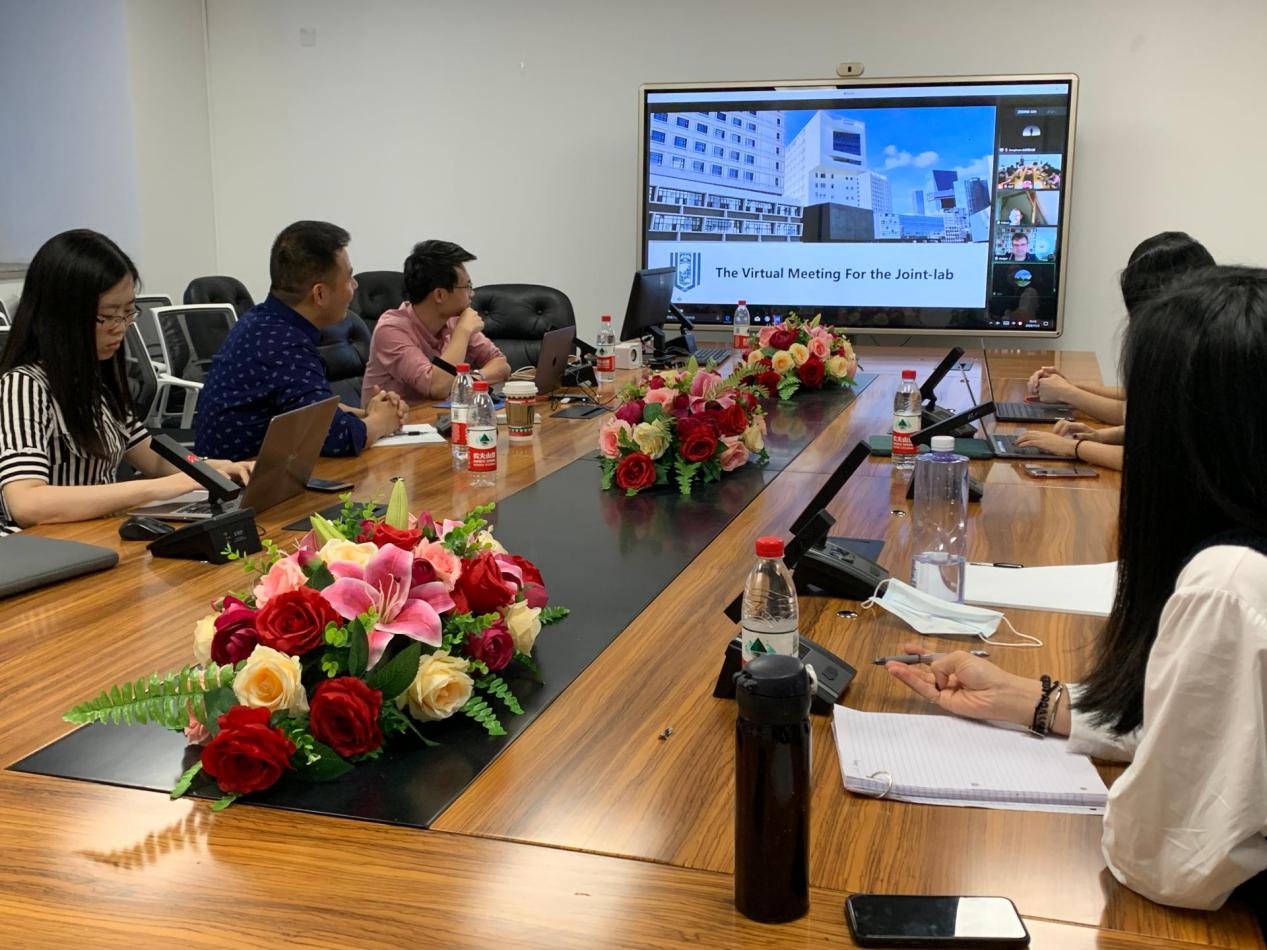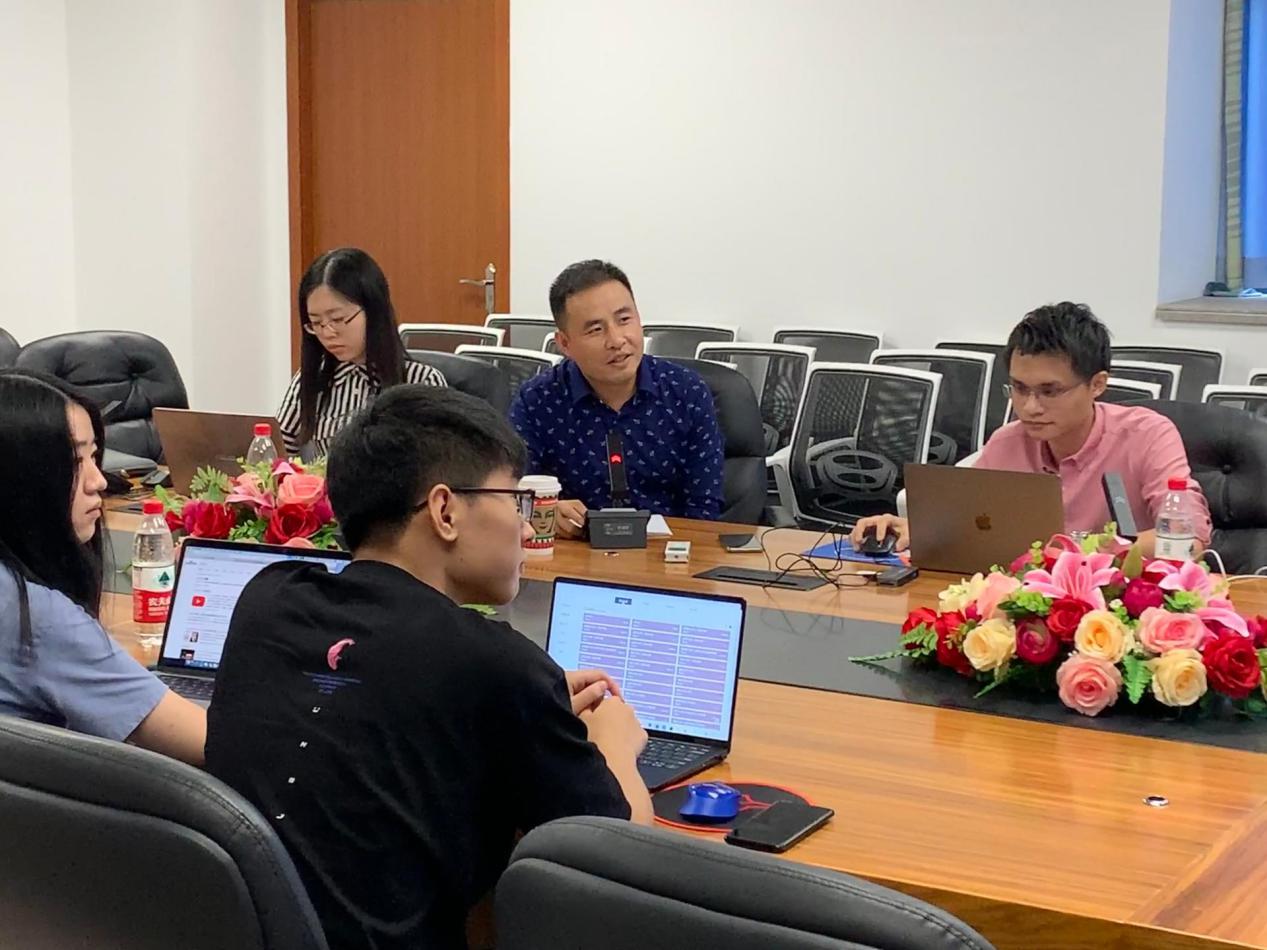On November 4, 2020, Co-Construct International Joint Laboratory and Co-Create New Academic Cooperation Mode—International cooperative exchange meeting between our institute and German Research Center for neurodegenerative diseases
On the issue of Co-construct an international joint laboratory, our institute held an online video conference with the German Center for Neurodegenerative Diseases(DZNE) inthe afternoon of November 3, 2020. The meeting was attended by Professor G. Müller and Dr. Fabian Herold, at DNZE ,the branch of Federation of Helmholtz national research centers and Professor Zou Liye, Associate Dean of the Psychological institute of Normal School (Department of Education), Assistant Professor Jiang Ronghuan, foreign secretary of the college, and other teachers and students.

During the talks, the participants briefly introduced their institutions respectively, to enhance mutual understanding and then establish a good foundation for cooperation between two parties. Professor Zou Liye elaborated on "the research development strategy of the College of psychology" and "the cooperation mode of the two parties in the fields of neuropsychology, geriatrics, sports and human science". The German Research Center for neurodegenerative diseases has always been aiming at international promotion and application, Professor Notger G. M
üller thinks,and regards China as an important partner. He hopes to take this meeting as a starting point, create more cooperation opportunities, and will make unremitting efforts to promote the development of human health together.

Meanwhile, Professor Notger G. Müller actively recommended other institutes to join the co-operative construction unit ,including the School of sports science, School of psychology, University of Magdeburg, and Max Planck Institute of Germany. He expressed the good vision of interdisciplinary (Psychology, sports science, clinical medicine) win-win progress and co-construction of international high-level joint laboratory. About the issues of Talent Training System and Academic Cooperation Mode, both parties explored them one by one and reached preliminary agreements on cooperation. After the meeting, the two parties initiated relevantpreparationworks immediately and Professor Marco Taubert , from Max Planck Institute in Germany, will be invited to join the cooperation project. It is expected that the doctoral joint training program will be carried out smoothly next year.
The co-construction of international cooperation joint laboratory platform is a new mode of international scientific and technological cooperation explored according to the characteristics of psychology discipline of our university. In addition to frontier academic research, the cooperation also includes mutual visits of teachers / researchers and joint training of students. Through the construction of the international joint laboratory, we not only share the scientific research and talent training resources from the psychology discipline of Shenzhen University and the world-renowned institutions, but also contributes to develop the future extensive international exchanges and cooperation, introduce and gather high-end scientific research talents, recruite and cultivate high-quality doctoral degree and postdoctoral researchers, establish international scientific research innovation team, plan to apply for international cooperation projects and undertake international conferences. All in all, it plays a positive role in promoting the exchange between teachers and international peers.
In the next step, on behalf of our institute, Professor Zou Liye , will negotiate international tie-up with Seoul University of Korea (QS World University ranked 37; psychology ranked 60 +, sports and human science ranked 10 +) , to gradually promote the internationalization work of our college.
Brief introduction of German Cooperative Institution
The Federation of German Helmholtz national research centers is the largest academic institution in Germany, with 18 research centers. Its work covers six strategic research fields and involves a number of international top-level scientific research. As a research center of the German federal government, the German Center for neurodegenerative diseases (DZNE) officially became a member of the Helmholtz Federation in 2009, and now has 10 sub centers scattered in 10 German cities (more than 1000 employees in total). Among them, the Magdeburg sub center is also affiliated to the medical school of Magdeburg University. The German Research Center for neurodegenerative diseases has established a good talent training, academic cooperation and scientific research transformation mechanism with many world-famous schools and top medical institutions.



 WeChat
WeChat